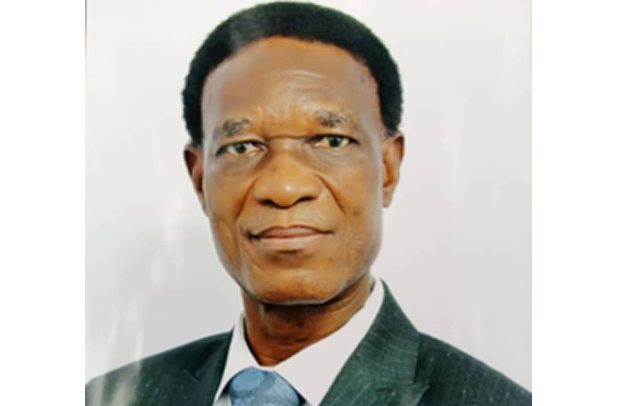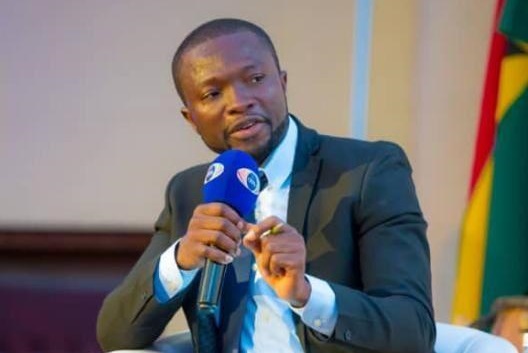


Mr. Thomas Nyarko-Ampem, the Deputy Minister of Finance, has reaffirmed government’s commitment to strengthening state-owned financial institutions, announcing that state-owned enterprises (SOEs) and covered entities will be required to transact more with state banks such as GCB Bank PLC.
He said the move, directed by government as majority shareholder, was not to exclude private banks but to reinforce the capacity of national institutions to better support development priorities, including financing Micro, Small and Medium Enterprises (MSMEs).
“This is not about pushing out private banks,” Mr. Nyarko-Ampem explained.
“It is about building our own banks strong enough to finance national priorities, especially MSMEs, which are the backbone of our economy.”
The Deputy Minister was addressing the Sixth Quadrennial Delegates Conference of the Professional and Managerial Staff Union (PMSU) of GCB Bank PLC in Ho, on the theme: “Strengthening the MSME Sector for Economic Transformation in Ghana: The Role of GCB Bank PLC.”
Mr. Nyarko-Ampem said MSMEs remain the engine of job creation, innovation, and opportunity, accounting for over 90 per cent of businesses in Ghana, employing nearly 80 per cent of the workforce, and contributing about 60 per cent to the national GDP.
“At the continental level, six in every 10 Africans work for an SME, with the sector creating eight in 10 new jobs,” he added.
He highlighted government interventions aimed at creating a stronger business environment, including:
Macroeconomic stability with falling inflation and interest rates; Tax reforms, including a comprehensive VAT overhaul in the 2026 Budget to simplify compliance and incentivize local manufacturing; The Big Push Initiative, committing the cedi equivalent of US $10 billion to close infrastructure gaps; Skills and entrepreneurship support, with over GH¢564 million already allocated and a further GH¢410 million in 2025; The launch of a Women’s Development Bank in January 2026 to support women-led enterprises.
“These interventions demonstrate that government is not only stabilizing the economy but also investing directly in skills, entrepreneurship, and infrastructure to ensure MSMEs thrive,” he said.
Commending GCB Bank’s strong half-year performance – with interest income of GH¢2.79 billion and operating income of GH¢2.7 billion – Mr. Nyarko-Ampem challenged the bank to do more for MSMEs.
“With such performance, expectations are high. Declining Treasury bill rates should encourage you to diversify your portfolio and extend more affordable credit to productive enterprises,” he urged.
He further encouraged the bank to integrate digital solutions and artificial intelligence with the expertise of its workforce for smarter SME financing.
“Your employees are your greatest asset. Continue investing in their training and capacity to deliver world-class service,” he added.
The Board Chairman of GCB Bank, Prof. Joshua Alabi, called for greater teamwork among the board, management, staff, and union, describing the bank as a “national asset” that must be strengthened collectively.
Prof. Alabi also disclosed plans for GCB Bank to expand into Liberia, Sierra Leone, The Gambia, Burkina Faso, Niger, and Mali, noting that government backing was crucial for this ambition.
“A strong domestic base is critical for regional expansion. Just as foreign banks thrive with government support in their countries, we too must back GCB to grow and compete beyond Ghana,” he said.
The Deputy Secretary-General of the Trades Union Congress (TUC), Dr. Kwabena Nyarko Otoo, praised PMSU for entrenching internal democracy but urged GCB Bank to prioritize patient capital for SMEs.
“Too many Ghanaian businesses remain micro enterprises and die when their founders retire. What they need is long-term, affordable financing – not short-term loans that set them up for failure,” he stressed.
He also appealed for protective trade policies, arguing that exposing small Ghanaian businesses to immediate foreign competition undermines their growth potential.
The Deputy Minister commended PMSU for focusing on national development rather than solely on conditions of service.
“This mindset reflects a recognition that unions, management, government, and financial institutions must all work together to strengthen MSMEs. Together, we can build a more resilient and inclusive economy that delivers prosperity for all,” he said.
Source: GNA
The post State-Owned enterprises to transact more with state banks – Deputy Finance Minister appeared first on Ghana Business News.
Read Full Story









Facebook
Twitter
Pinterest
Instagram
Google+
YouTube
LinkedIn
RSS